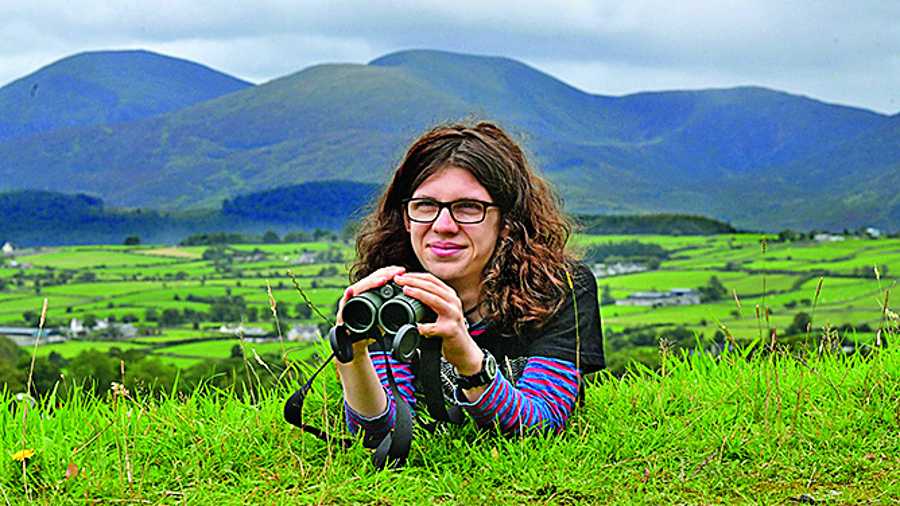Book: Diary of a Young Naturalist
Author: Dara McAnulty,
Publisher: Little Toller
Price: £16
Things shift and stir within the Diary of a Young Naturalist, a book that encases a squirming world with a feather-light touch. The Irish skies, Sitka forests and islands of County Fermanagh are stippled into view in its entries. Hen harriers, gannets, pippins and other birds of unfamiliar name circle its skies, lending the diary of the shy, quiet fourteen-year-old a clamorous, rustling, avian energy. Its entries map the author and his family’s constant interactions with nature — in their suburban garden, during their holidays to nature reserves, and the family walks.
The diary is as much about the “turnings” within the author’s mind as it is about nature. The world of school, replete with anxieties, expectations and pressures of upcoming GCSE examinations, winds its way into the equally busy wilderness in some entries. Memories of bullying and his distress in social circumstances pigment his reflections. In one entry about him addressing a group of students, McAnulty emphasizes how frantic and overwhelmed he feels during interactions: “The smells of the evening air and the rustling in the trees were becoming thunderous. The effort it took to stay with them, to stay focussed, was gargantuan. But it was worth it. None of the fifteen kids sneered. They didn’t heckle”. When some form of fellowship is established, around him things change — he sees his breath in the night air, feels a glow around him and sees birds roosting above.
Like his muse, Seamus Heaney, Dara McAnulty uses his “squat pen” for digging. The entries are furrowed from his excavation of nature and his own reactions. Not entirely unwittingly, he reaches into his Irish heritage of nature poetry and a naturalist tradition. His descriptions of the wild draw readers into an alluringly scenic world. A tufted duck appears in one entry as if it were embroidered in bullion knots against the diary’s fabric. Yet there is a lot more to his writing than artistry. Folklore, science and a deep love of poetry are reconciled in his viewpoint. He doesn’t simply see birds or hear them sing — he instinctively measures their wingspan or starts reflecting on questions of new agricultural practices and how these disrupt the breeding habits of birds. He also sees his autism from a naturalist’s lens, where he likens his own efforts to be social with the work put in by aquatic birds to glide on water.
So much has been said and imagined of children’s relationship with nature that this book is a revelation for various reasons. To begin with, it is an unmediated account from a child about his views on nature and the environment. Yet, McAnulty is not Rousseau’s Emile, or even like a romantic child figure of juvenile fiction who spends all his time whispering to the wild. Twitter, X-Box and environmental movements along with trees, birds and insects constitute his world, making the idea of this environmentalism/naturalism slightly more accessible to urban South Asian readers who might otherwise find the Northern Irish wilderness difficult to connect with.
The accounts of his activism are woven into this work that is an important record of an environmental movement in the making. Some might imagine the author’s similarities with Greta Thunberg, who also finds mention here as someone McAnulty knows from Twitter. Yet, there is a difference in their approaches. The book does not simmer with an enraged ‘How dare you?’ His agony finds another outlet. There is a frantic overtone in the diary regardless of its eco-lyricality. The meticulousness and the tenacity with which each species is spoken of, held up, explained and entered give his diary the appearance of a receptacle, like Noah’s Ark in which every form of life salvaged has to be kept before the deluge.











